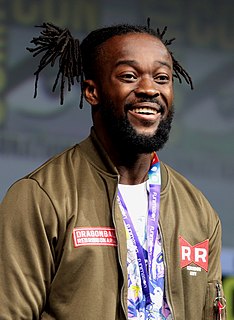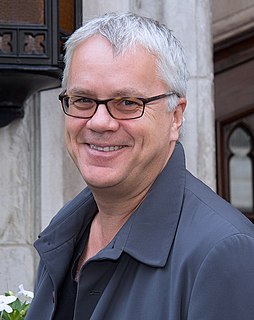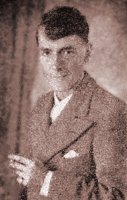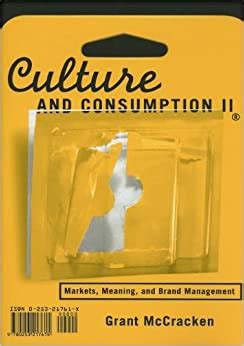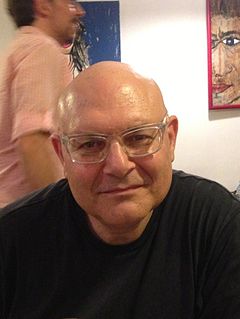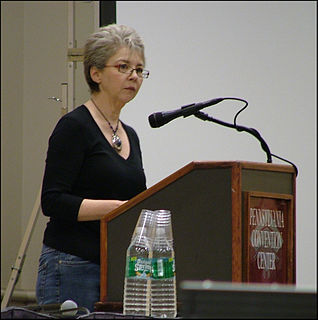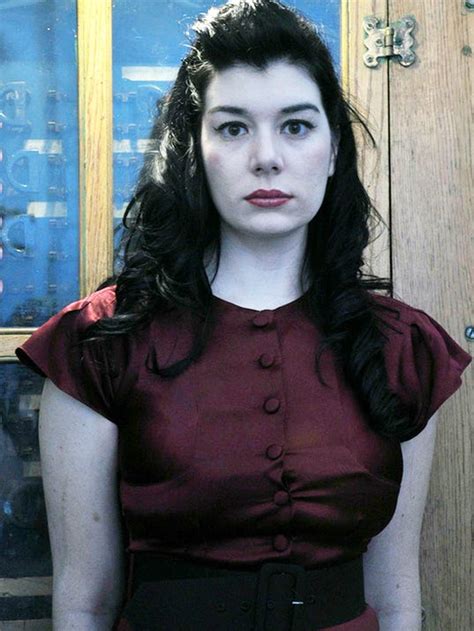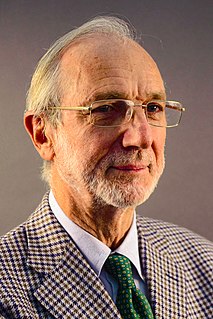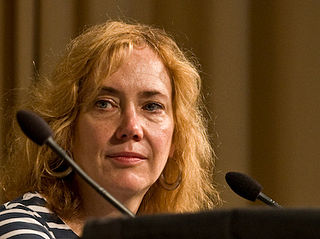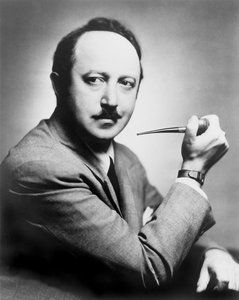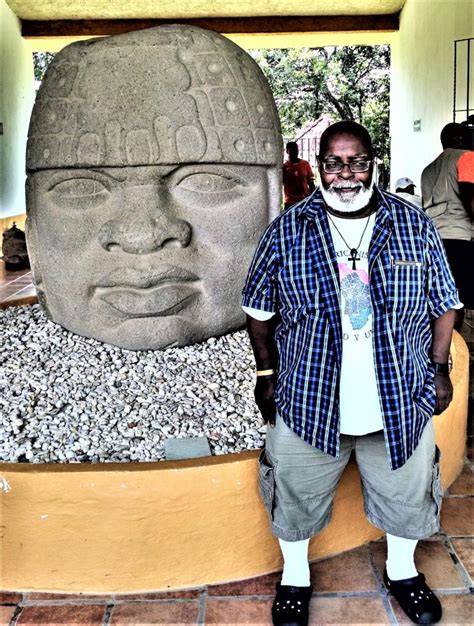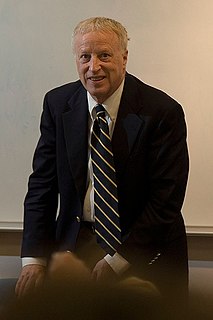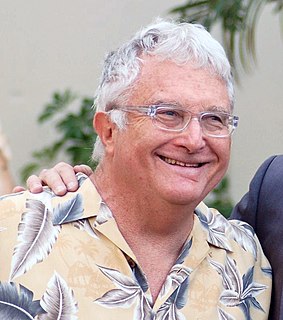Top 183 Anthropology Quotes & Sayings - Page 3
Explore popular Anthropology quotes.
Last updated on December 21, 2024.
Depended on the soldier. To relax, most of them put on headphones or played video games. Later in the war some of the younger officers began to read a lot of anthropology because they realized that the basic problem was that they were trying to fight a war in a culture they didn't understand. They might have read someone like Margaret Mead.
If you know anything about Islamic civilization, or about the contemporary Middle East, about the sociology and the anthropology of the people who live there, and their recent history, and their religion, and their motivation and everything, then you realize that changing Iraq into a democracy is not going to happen. It's just not going to happen.
The object is evident in the name of the discipline. Similarly, theology (theologia) is the study of God. The object of theology is not the church's teaching or the experience of pious souls. It is not a subset of ethics, religious studies, cultural anthropology, or psychology. God is the object of this discipline.
Geneticists believe that anthropologists have decided what a race is. Ethnologists assume that their classifications embody principles which genetic science has proved correct. Politicians believe that their prejudices have the sanction of genetic laws and the findings of physical anthropology to sustain them.
Margaret Mead was both a student of civilization and an exemplar of it. To a public of millions, she brought the central insight of cultural anthropology: that varying cultural patterns express an underlying human unity. She mastered her discipline, but she also transcended it. Intrepid, independent, plain spoken, fearless, she remains a model for the young and a teacher from whom all may learn.
I like to use exercise classes as a way of understanding what people are doing. I'm promiscuous in terms of exercise. You see what people are wearing. You see what people are responding to. You see what the music is they're listening to. An exercise class is social anthropology: what clothes people are wearing, what are the new sneakers.
This missing science of heredity, this unworked mine of knowledge on the borderland of biology and anthropology, which for all practical purposes is as unworked now as it was in the days of Plato, is, in simple truth, ten times more important to humanity than all the chemistry and physics, all the technical and indsutrial science that ever has been or ever will be discovered.
See how exciting Anthropology is? He’s a leading expert in ancient Greece. Now you should all change your majors so that you can ogle men like him all day long. Or better yet, uncover naked male statues. (Tory) Was that necessary? (Acheron) Hey, I live to recruit students for the department. If I can make you good for something, then by golly I’m going to do it. (Tory)
I think about my education sometimes. I went to the University of Chicago for awhile after the Second World War. I was a student in the Department of Anthropology. At that time they were teaching that there was absolutely no difference between anybody. They may be teaching that still. Another thing they taught was that no one was ridiculous or bad or disgusting. Shortly before my father died, he said to me, ‘You know – you never wrote a story with a villain in it.’ I told him that was one of the things I learned in college after the war.
I have been accused of having believed when I wrote Sex and Temperament that there are no sex differences... This, many readers felt, was too much. It was too pretty. I must have found what I was looking for. But this misconception comes from a lack of understanding of what anthropology means, of the open-mindedness with which one must look and listen, record in astonishment and wonder, that which one would not have been able to guess.
So the aim for the press was a mixture of things: to publish under-represented writing, which is an intersection of original language, style, content, and often its author's gender. To publish it properly, in a way that makes it clear that this is art, not anthropology. To spotlight the importance of translation in making cultures less dully homogenous.
In a world where concepts are so often deployed in an ad hoc fashion, half explored before being displaced by others, it is immensely refreshing to encounter such serious and sustained attention to the building blocks of inquiry—and to the responsibilities thereby incurred. Designs on the Contemporary is a work of profound importance to the philosophy of anthropology. In conjunction with Rabinow’s other works, it creates a nonpareil, a configuration of thought with no equal.
Mead's anthropology had many other red, white and blue- blooded virtues. One was the common anthropological conceit, out of which she made a career, to the effect that the ultimate value of studying other cultures was the use we could make of them to reconstruct our own - a heady kind of intellectual imperialism, as if the final meaning of others' lives was their significance for us.
Because he did not have time to read every new book in his field, the great Polish anthropologist Bronislaw Malinowski used a simple and efficient method of deciding which ones were worth his attention: Upon receiving a new book, he immediately checked the index to see if his name was cited, and how often. The more "Malinowski" the more compelling the book. No "Malinowski", and he doubted the subject of the book was anthropology at all.
General editors' preface The growth of translation studies as a separate discipline is a success story of the 1980s. The subject has developed in many parts of the world and is clearly destined to continue developing well into the twenty-first century. Translation studies brings together work in a wide variety of fields, including linguistics, literary study, history, anthropology, psychology, and economics. This series of books will reflect the breadth of work in translation studies and will enable readers to share in the exciting new developments that are taking place at the present time.
We still have to realize that if you are say a historian of the Civil War, you don’t know anything special about say Columbus or for that matter the 20th century. You are a consumer of that information, especially if it’s stuff like Columbus and the American Indians. That information isn’t even in history, much of it. Much of it is in anthropology or archeology.
I didn't major in anthropology in college, but I do feel I had an education in different cultures very early on. My parents divorced when I was eleven, and my father immediately married a woman with three children and was with her for five years. When they got divorced, he immediately married a woman with four children. In the meantime, my mother married a man who had seven children. So I was going from one family to another between the ages of eleven and eighteen.
I started my professional life as a philosopher of language and for several years took the orthodox line that meaning is an essentially linguistic phenomenon. Whether as a result of simply listening to everyday talk about meaning, or reading books of anthropology, sociology and art history, it dawned on me that there is nothing at all privileged or central about linguistic meaning.
Architecture is art. I don't think you should say that too much, but it is art. I mean, architecture is many, many things. Architecture is science, is technology, is geography, is typography, is anthropology, is sociology, is art, is history. You know all this comes together. Architecture is a kind of bouillabaisse, an incredible bouillabaisse. And, by the way, architecture is also a very polluted art in the sense that it's polluted by life, and by the complexity of things.
I went to college to study drama where I discovered I had no talent and after a period of dropping out majored in cultural anthropology which of course meant more masks and dancing. I studied what interested me and so I had to become a writer because my education had left me unsuited for a decent well-paying job.
In the end, we learn about the most basic philosophical questions - like "How to live?" - from a broad mixture of sources, including literature and philosophy, history and anthropology. These sources can guide our reflections on our own experiences, as we explore and reconsider. Mann contributed to such explorations in a distinctive way, and I hope my book brings that out.
I narrowed my eyes at him. "Stuff that. I'll write a doctoral thesis. Then I can go do what most of the other people with doctoral degrees in anthropology do." "What's that?" asked Calvin. "You don't need to encourage her," said Adam seriously, but his eyes laughed at me. "The same thing that people with degrees in history do," I said. "Fix cars or serve frnech fries and bad hamburgers.
This is an extremely ambitious book. In addition to science and mathematics, Byers brings to bear insights from literature, philosophy, religion, history, anthropology, medicine, and psychology. The Blind Spot breaks new ground, and represents a major step forward in the philosophy of science. The book is also a page-turner, which is rare for this topic.
The Restless Anthropologist is a rich, powerful, and compulsively readable collection of essays by anthropologists who look back at the multiple relationships between their serial fieldwork experiences and their lives. Illustrating the dense interweaving of the personal and the professional that is the hallmark of anthropology as a vocation, these essays are at once affectively deep reflections, and clear-eyed assessments, of lives often lived 'between here and there.' Alma Gottlieb's idea to stimulate these articles and bring together this collection was inspired.
Modern anthropology ... opposes the utilitarian assumption that the primitive chants as he sows seed because he believes that otherwise it will not grow, the assumption that his economic goal is primary, and his other activities are instrumental to it. The planting and the cultivating are no less important than the finished product. Life is not conceived as a linear progression directed to, and justified by, the achievement of a series of goals; it is a cycle in which ends cannot be isolated, one which cannot be dissected into a series of ends and means.
You have a lot to learn, young man. Philosophy. Theology. Literature. Poetry. Drama. History. Archeology. Anthropology. Mythology. Music. These are your tools as much as brush and pigment. You cannot be an artist until you are civilized. You cannot be civilized until you learn. To be civilized is to know where you belong in the continuum of our art and your world. To surmount the past, you must know the past.
If we study history and anthropology we will find that all over the world the original people are Black people who migrated from Africa. This is confirmed by recent DNA studies. The only reason that we don't readily accept this is because we are indoctrinated to believe that Africa is the worst place that has ever been. If we had a more positive attitude about Africa we would run to it instead of running from it.
Economic theorists, like French chefs in regard to food, have developed stylized models whose ingredients are limited by some unwritten rules. Just as traditional French cooking does not use seaweed or raw fish, so neoclassical models do not make assumptions derived from psychology, anthropology, or sociology. I disagree with any rules that limit the nature of the ingredients in economic models.
I was not an anthropology student prior to the war. I took it up as part of a personal readjustment following some bewildering experiences as an infantryman and later as a prisoner of war in Dresden, Germany. The science of the Study of Man has been extremely satisfactory from that personal standpoint.
When I'm not governing my country any more, I'll go back to taking care of children. Or else I'll start studying anthropology - it's a science that's always interested me very much, also in relation to the problem of poverty. Or else I'll go back to studying history - at Oxford I took my degree in history. Or else...I don't know, I'm fascinated by the tribal communities. I might busy myself with them.
If I'd have gone to art school, or stayed in anthropology, I probably would have ended up back in film ... Mostly I just followed my inner feelings and passions ... and kept going to where it got warmer and warmer, until it finally got hot ... Everybody has talent. It's just a matter of moving around until you've discovered what it is.
Anthropology has reached that point of development where the careful investigation of facts shakes our firm belief in the far-reaching theories that have been built up. The complexity of each phenomenon dawns on our minds, and makes us desirous of proceeding more cautiously. Heretofore we have seen the features common to all human thought
I think sociologists are among the best at thinking about emergence, of thinking about the ways that the society is more than the sum of the individuals. And I've found that much of the wisest writing on human social nature comes from sociology and anthropology, not from my own field of social psychology.
I wanted to be a car mechanic and I wanted to race cars and the idea of trying to make something out of my life wasn't really a priority. But the accident allowed me to apply myself at school. I got great grades. Eventually I got very excited about anthropology and about social sciences and psychology, and I was able to push my photography even further and eventually discovered film and film schools.
I know of no department of natural science more likely to reward a man who goes into it thoroughly than anthropology. There is an immense deal to be done in the science pure and simple, and it is one of those branches of inquiry which brings one into contact with the great problems of humanity in every direction.
I've got a solid grounding in history, sociology, anthropology, philosophy, etc etc. That means I actually have a good idea about how societies change and evolve. I know how a lot of them have actually functioned through the years. I can put together a culture that's cool and different, while still being logically consistent, so that it feels real. So many fantasy worlds are either implausible, cookie-cutter, or both. Mine aren't.
Oral history is a research method. It is a way of conducting long, highly detailed interviews with people about their life experiences, often in multiple interview sessions. Oral history allows the person being interviewed to use their own language to talk about events in their life and the method is used by researchers in different fields like history, anthropology and sociology.


